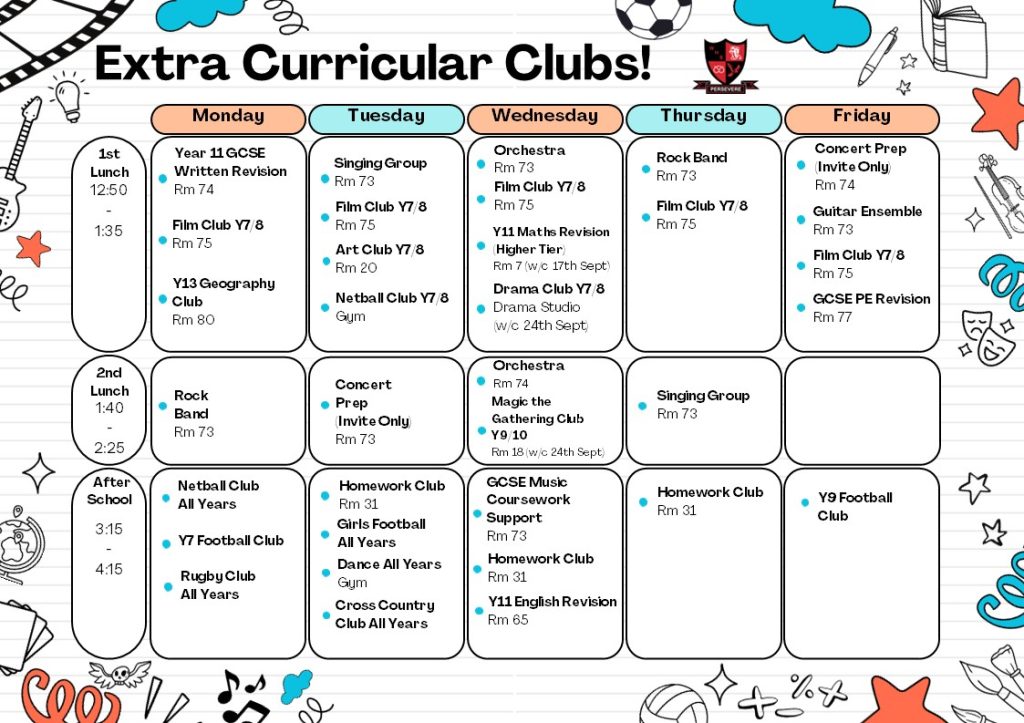Exam Results
Exam Results – Third Party Collection
Extra Curriculum
Please see below for all the information on the Extra Curriculum Activities we offer:

JCQ Information For Candidates
Information For Candidates:
- JCQ Preparing to sit your exams for students
- INF Written Examinations
- Warning to Candidates
- JCQ Social Media Information for Candidates
- Unauthorised items poster
- JCQ Online Screen Tests
- JCQ Coursework Assessment
- JCQ Non Examination Assessments
Exam Timetables
Please click the link below for the exam timetable:
External Examination Timetable – November 2025
Please note that individual student timetables will be available to collect via tutors, however, this information is already available on the iSAMS app, which we advise you to check on a regular basis.
Year 11 Mock Examination Information
Year 11 Mock Examinations Timetable 2025
Year 11 Mock Examinations Letter to Parents
Year 11 Revision Drop-In Timetable (Autumn Term 2025)
Effective Revision Strategies
GCSE Exam Board Information
JCQ Preparing to sit your exams
Exam Information
Key Information for Exams
- Exam Information Booklet
- Walton Examination Key Information
- Unauthorised Items Poster
- Warning to Candidates Poster
- Exam Certificate: Third Party Collection
JCQ
- JCQ Preparing to sit your exams for students
- JCQ Information for Candidates Regulations
- JCQ Social Media Information for Candidates
- JCQ Social Media Infographic
Policies relating to examinations can be found on our Policies Page.
All this information will be given to students verbally during assembly prior to exams place. Students are encouraged to read this information so they are fully informed.




Student Self Help
Anyone who has any concerns about a child can contact:
Staffordshire Children’s Advice Service on 0300 111 8007.
Childline on 0800 1111

Below are some links with information about local and UK based charities with numerous resources available to support your mental health.







